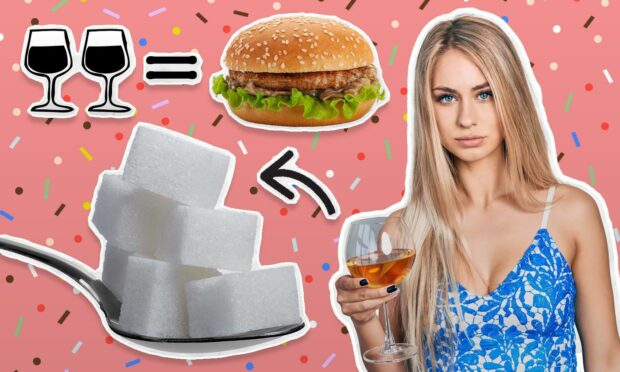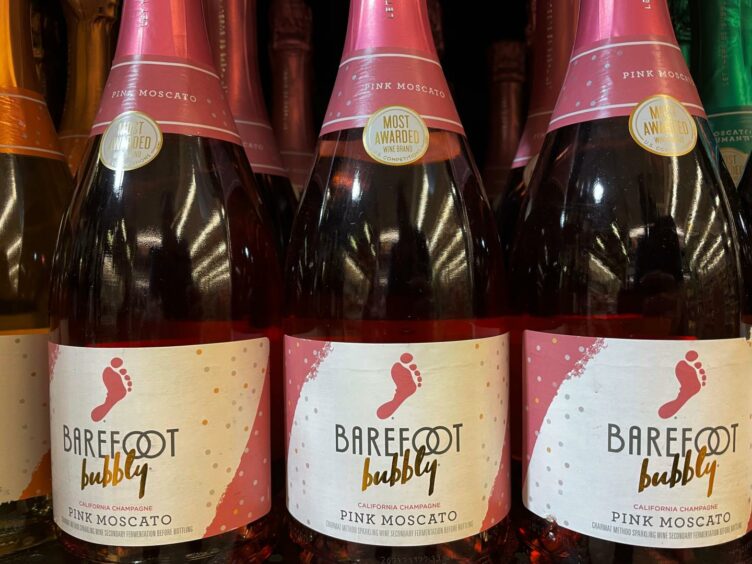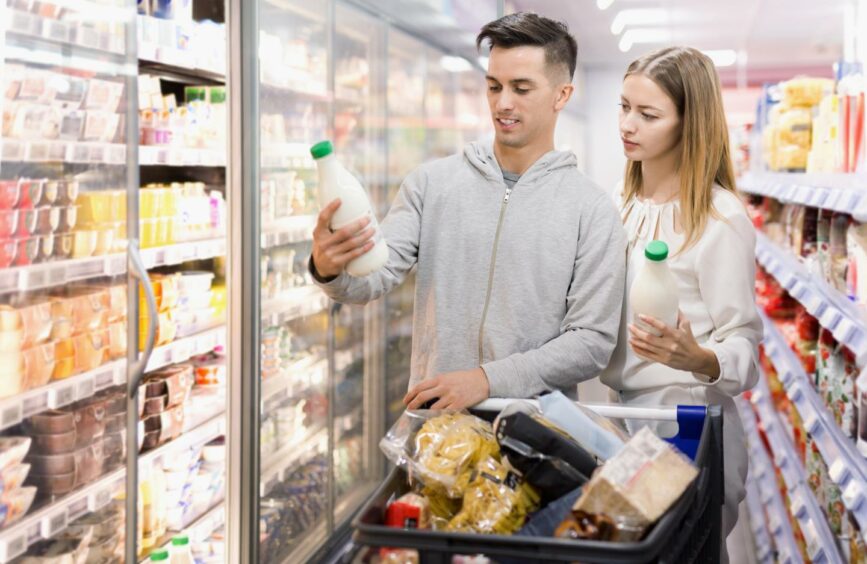Scottish experts are demanding changes to alcohol labelling, as many are unaware just two glasses of wine can contain more than your daily recommended sugar intake.
Health chiefs say it’s “absurd” booze is exempt from displaying the likes of calorie counts on bottles – a rule all non-alcoholic drinks have to follow.
It means consumers are being left “in the dark” about the fact a few glasses of their favourite wine could have more calories than a hamburger, or more sugar than a jam doughnut.
Which wines are worst for sugar content?
The warning has come off the back of a study by the Alcohol Health Alliance, which looked at 30 bottles of wine from the UK’s 10 leading brands.
It found some can have as many as 59g of sugar – almost double the recommended daily maximum of 30g.
In the test, Barefoot’s Bubbly Pink Moscato fared the worst, with the average glass containing almost 14g of sugar.
The brand’s Pink Moscato rose wine had 11.1g, while Echo Falls’ 9% Fruit Fusion Summer Berries placed third with 9.2g.
The analysis found that the wines containing the most sugar tended to be those in lower-strengths, with no legal obligation to display sugar content on their labels.
Health charities are concerned consumers may turn to these, believing them to be “healthier” – unaware of the high volume of sugar.
In turn, they fear this could lead to them developing type 2 diabetes or tooth decay.
More calories than a Mars Bar
Meanwhile, wines which had the most calories were linked to higher-strength drinks, which can increase the risk of seven types of cancer.
The Hardys Stamp Shiraz Cabernet topped the list here, with a medium 175ml measure coming in at 140kcal.
Just two glasses would contain more calories than a McDonald’s hamburger, a Mars Bar or a Magnum ice cream.
‘Absurd’ and ‘woefully inadequate’
The study found only 20% of the bottles examined had labels displaying their calorie count – and none showed sugar content.
Alcohol Focus Scotland has branded the situation “woefully inadequate” – particularly for a product linked to so many health concerns.
Chief executive Alison Douglas said: “(It) allows the alcohol industry to decide what information it will and won’t include on its products, despite alcohol claiming the lives of 70 people a day in the UK.
“The industry has dragged its feet for long enough.
“Unless labelling requirements are set out in law, we will continue to be kept in the dark about what is in our drinks.”
And the chairman of the Alcohol Health Alliance has claimed the current set-up is “absurd”.
Professor Sir Ian Gilmore has called for movement on a planned consultation on the topic from the UK Government, announced last year.
“Shoppers who buy milk or orange juice have sugar content and nutritional information right at their fingertips,” he said.
“But this information is not required when it comes to alcohol – a product not just fuelling obesity but with widespread health harms and linked to seven types of cancer.”
Read more:
Alcohol deaths in UK hit new high after record increase
Less than half of people who vowed to cut back on drinking stuck to plan – poll


